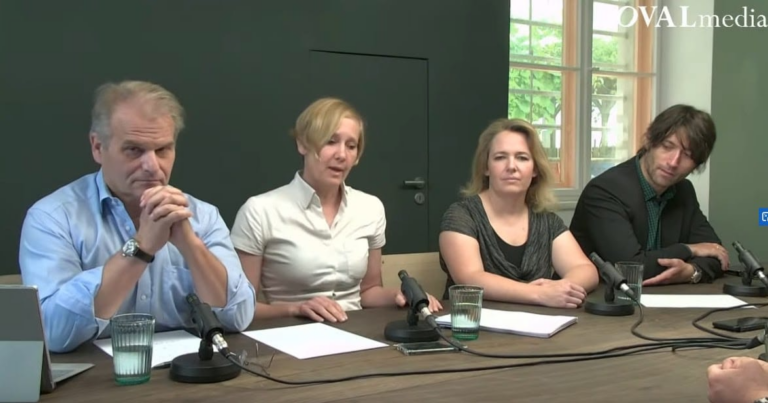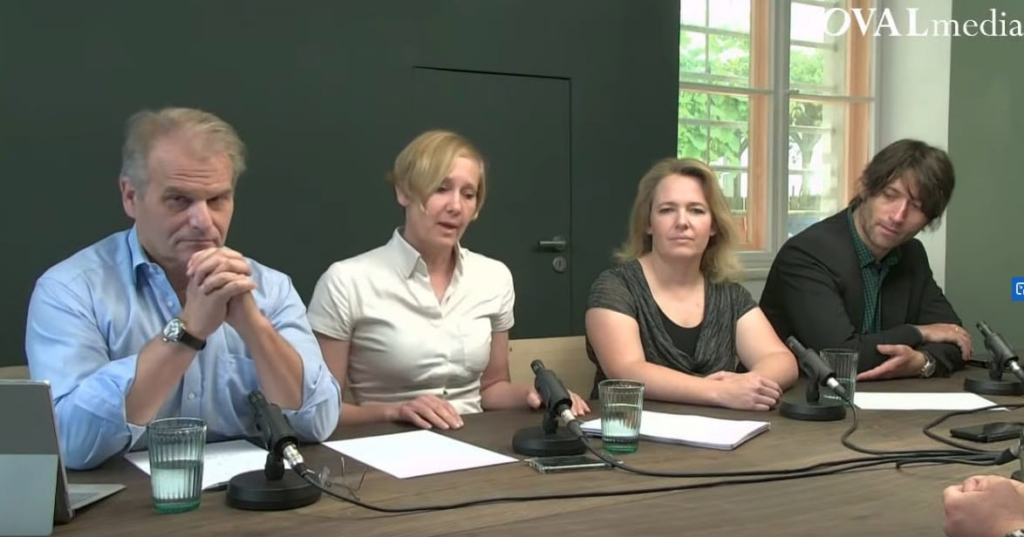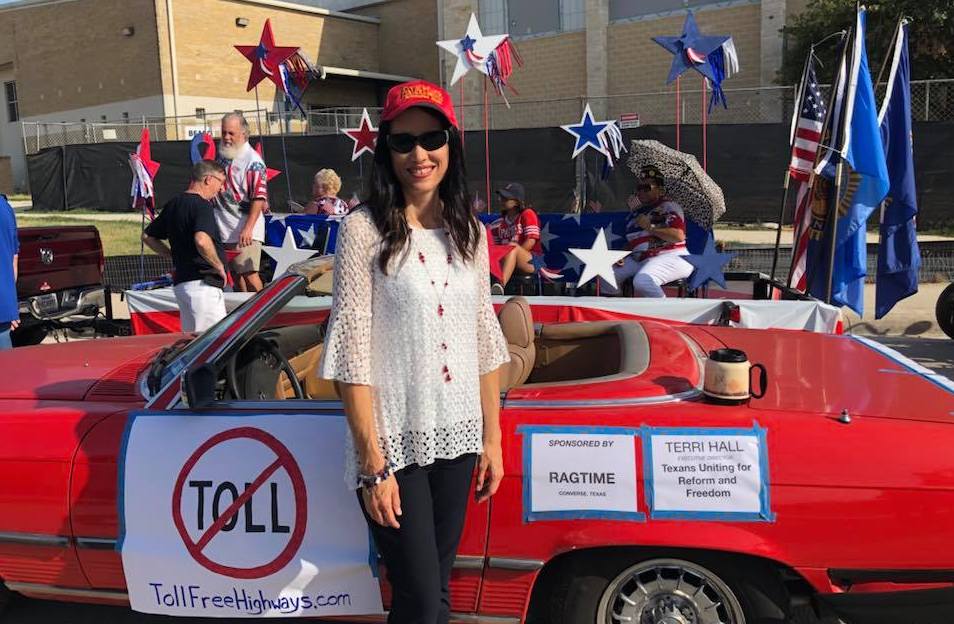“Reality is that which, when you stop believing in it, doesn’t go away.” ~ Philip K. Dick
By Catherine Austin Fitts
Dr. Mark Skidmore is a professor of Economics and holds the Morris Chair in State and Local Government Finance and Policy in the Department of Agricultural, Food, and Resource Economics at Michigan State University (MSU). He also serves as Director of MSU’s North Central Regional Center for Rural Development.
Dr. Skidmore joined our event hosted by Rob Kirby in Toronto in August. He graciously took time before returning to Michigan to share his latest thinking about how to manage our “map” of reality. These insights reflect his journey from “official reality” to expanding his understanding of the world as a result of the financial crisis and bailouts, reviewing $21 trillion of undocumentable adjustments in the federal accounts, and witnessing the adoption of FASAB 56.
We discuss the challenges of understanding and navigating a reality and “official reality” that are increasingly divergent and how to avoid being misled by nonsense along the way. Based on my discussion with subscribers, finding a sensible approach to the fracturing of the world around us is of great importance.
In Let’s Go to the Movies, I review American Factory, a new documentary about a Chinese company factory in Dayton, Ohio, that revives a shuttered General Motors plant and grapples with achieving profitability amid culture clashes and the growing pressure of automation.
Subscribers can e-mail or post questions and story suggestions for Money & Markets for September 12th here.
Talk to you Thursday!


























































































































Fantastic interview and the 4 slides are just what a visual learner like me needs! I would love to be able to share only the last slide about Aspiration on my Discord server. I have about 20 friends on there and they are all truth seekers. I am working on them to become subscribers to Solari.
I will not do this unless you give permission.
Thanks so much for all of your help, and the learning and wisdom I have received from you that has guided my path to become coherent and maintain said coherence.
Pam:
OK to share!
Catherine
Fantastic interview and the 4 slides are just what a visual learner like me needs! I would love to be able to share only the last slide about Aspiration on my Discord server. I have about 20 friends on there and they are all truth seekers. I am working on them to become subscribers to Solari.
I will not do this unless you give permission.
Thanks so much for all of your help, and the learning and wisdom I have received from you that has guided my path to become coherent and maintain said coherence.
Pam:
OK to share!
Catherine
I very much enjoyed this interview. For a man of his credentials to say he was blindsided by the financial crisis and to describe a journey that was so very familiar was really helpful. Creating a new map is scary and it is a whole lot of work…and, also pretty lonely. Dr. Skidmore did a much better job than I in finding “life in the intersection”. I careened into like a pinball flying off the different flippers…but, thankfully, in no small part due to Solari, I think I found it (for now).
P.S Scarlet O’Hara has been my strategy for most of my adult life…it’s a useful technique and I loved that someone else uses it and calls it that;)
I laugh. I can always feel that moment coming on…”time to pull a Scarlet O’Hara…”
I very much enjoyed this interview. For a man of his credentials to say he was blindsided by the financial crisis and to describe a journey that was so very familiar was really helpful. Creating a new map is scary and it is a whole lot of work…and, also pretty lonely. Dr. Skidmore did a much better job than I in finding “life in the intersection”. I careened into like a pinball flying off the different flippers…but, thankfully, in no small part due to Solari, I think I found it (for now).
P.S Scarlet O’Hara has been my strategy for most of my adult life…it’s a useful technique and I loved that someone else uses it and calls it that;)
I laugh. I can always feel that moment coming on…”time to pull a Scarlet O’Hara…”
Dear Catherine
You got an MBA and I suspect that it helped advance your career, but that was back in the 80s. Many knowledgeable and successful people such as Jim Rogers, Doug Casey and Paul Craig Roberts are now saying that getting a college degree, let alone an MBA, is a waste of time and money.
In terms of careers, where do you see the finance world headed?
It seems as though most accounting functions will be replaced by software and most of the accounting firms are more in the business of consulting than accounting, so I wonder if accounting is a good career choice for a young person to go into who likes dealing with numbers. Trading seems to be heading for extinction. Do you think fintech has long term sustainable career possibilities?
You have talked about navigating within the field of reality, so what advice would you give today to a young high school or undergraduate student who is interested in pursuing a career in banking or finance?
Thanks for your thoughts.
Accounting, like investment banking, is a good career choice to learn accounting and finance. It will only work if you master the legal and regulatory systems associated as well as related IT. You need to master the software. Otherwise you are at the mercy of those programming it. If you use your time in college and grad skill to get the right skills and meet the right people – not a waste of time. If you waste the time, yes, it is waste. If you are disciplined about building those skills while working, then would be better off economically by learning them in action. So it depends on how you do it. What I would not do is go into debt to get the degrees.
The power positions will be those who write the laws, those who write the code and those who can take the laws and code and apply them successfully – including keeping them from destroying – human ecosystems.
I don’t know enough about fintech to answer your question. The ideal fintech entry level position would be roaming around a large investment bank or accounting firm building a series of fintech applications and software models, then finding a niche where you can build your own brand and economic power. My guess is that financial and accounting software will be an explosive opportunity for a long, long time to come.
Ultimately accounting and finance are subservient functions. An economic activity uses them in the process of serving a purpose – making carpets, cleaning houses, publishing books, flying airplanes. The value is going to move much closer to the fundamental purpose at the retail level and who can add the greatest value on the most economic basis. That is why it helps to work with something you are passionate about. Takes a lot of passion as the margins are squeezed down to hold your interest.
Excellent advice. Thanks so much. I will pass it on.
Andrew:
If you have not read AI Superpowers, would recommend. Excellent examples of deep learning applications translating into companies and IPO. See book review at solari.com
Dear Catherine
You got an MBA and I suspect that it helped advance your career, but that was back in the 80s. Many knowledgeable and successful people such as Jim Rogers, Doug Casey and Paul Craig Roberts are now saying that getting a college degree, let alone an MBA, is a waste of time and money.
In terms of careers, where do you see the finance world headed?
It seems as though most accounting functions will be replaced by software and most of the accounting firms are more in the business of consulting than accounting, so I wonder if accounting is a good career choice for a young person to go into who likes dealing with numbers. Trading seems to be heading for extinction. Do you think fintech has long term sustainable career possibilities?
You have talked about navigating within the field of reality, so what advice would you give today to a young high school or undergraduate student who is interested in pursuing a career in banking or finance?
Thanks for your thoughts.
Accounting, like investment banking, is a good career choice to learn accounting and finance. It will only work if you master the legal and regulatory systems associated as well as related IT. You need to master the software. Otherwise you are at the mercy of those programming it. If you use your time in college and grad skill to get the right skills and meet the right people – not a waste of time. If you waste the time, yes, it is waste. If you are disciplined about building those skills while working, then would be better off economically by learning them in action. So it depends on how you do it. What I would not do is go into debt to get the degrees.
The power positions will be those who write the laws, those who write the code and those who can take the laws and code and apply them successfully – including keeping them from destroying – human ecosystems.
I don’t know enough about fintech to answer your question. The ideal fintech entry level position would be roaming around a large investment bank or accounting firm building a series of fintech applications and software models, then finding a niche where you can build your own brand and economic power. My guess is that financial and accounting software will be an explosive opportunity for a long, long time to come.
Ultimately accounting and finance are subservient functions. An economic activity uses them in the process of serving a purpose – making carpets, cleaning houses, publishing books, flying airplanes. The value is going to move much closer to the fundamental purpose at the retail level and who can add the greatest value on the most economic basis. That is why it helps to work with something you are passionate about. Takes a lot of passion as the margins are squeezed down to hold your interest.
Excellent advice. Thanks so much. I will pass it on.
Andrew:
If you have not read AI Superpowers, would recommend. Excellent examples of deep learning applications translating into companies and IPO. See book review at solari.com
Many thanks to Skidmore for providing a way to mentally manage all the info I take in, and begin to understand where I’m “at” in reality. I also appreciated the tip that we can’t completely ignore the nonsense and official reality.